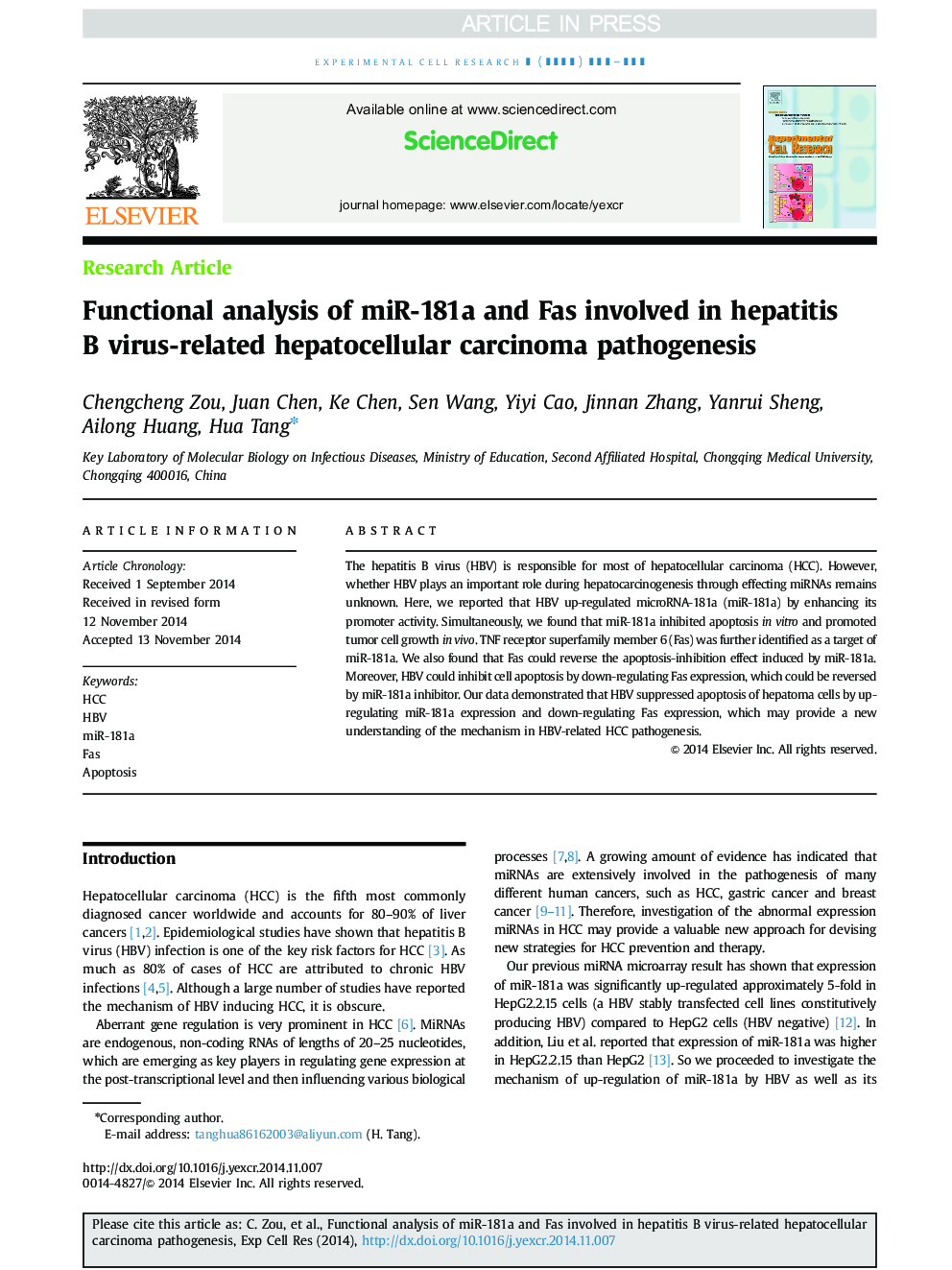| Article ID | Journal | Published Year | Pages | File Type |
|---|---|---|---|---|
| 10903819 | Experimental Cell Research | 2015 | 10 Pages |
Abstract
The hepatitis B virus (HBV) is responsible for most of hepatocellular carcinoma (HCC). However, whether HBV plays an important role during hepatocarcinogenesis through effecting miRNAs remains unknown. Here, we reported that HBV up-regulated microRNA-181a (miR-181a) by enhancing its promoter activity. Simultaneously, we found that miR-181a inhibited apoptosis in vitro and promoted tumor cell growth in vivo. TNF receptor superfamily member 6 (Fas) was further identified as a target of miR-181a. We also found that Fas could reverse the apoptosis-inhibition effect induced by miR-181a. Moreover, HBV could inhibit cell apoptosis by down-regulating Fas expression, which could be reversed by miR-181a inhibitor. Our data demonstrated that HBV suppressed apoptosis of hepatoma cells by up-regulating miR-181a expression and down-regulating Fas expression, which may provide a new understanding of the mechanism in HBV-related HCC pathogenesis.
Related Topics
Life Sciences
Biochemistry, Genetics and Molecular Biology
Cancer Research
Authors
Chengcheng Zou, Juan Chen, Ke Chen, Sen Wang, Yiyi Cao, Jinnan Zhang, Yanrui Sheng, Ailong Huang, Hua Tang,
